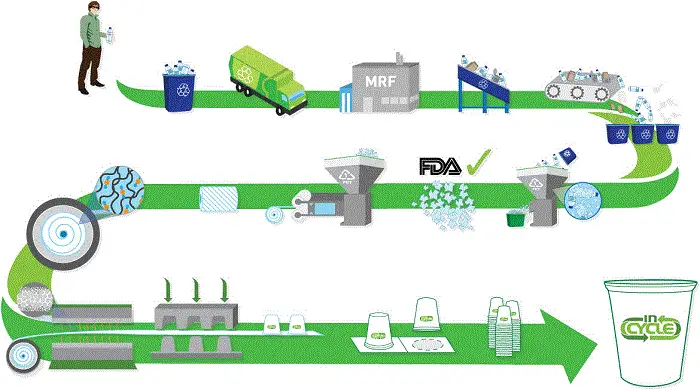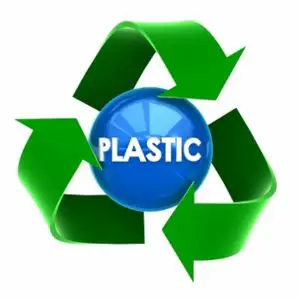Plastic recycling is the process that involves recovering the waste plastic material or scrap and reprocessing those materials into many useful products. Plastics have excellent strength, structural designs and amazing recycling features. There are some plastics, which are recyclable while few other are non-recyclable. Scrap or waste plastics must be recycled to protect the environment, with plastic recycling process they can be reprocessed into useful products such as chairs, tables, bags, and more.

The plastics are made from different polymers including polythene terephthalate, which is utilized for beverage containers such as, bottles for soft drinks, water and also in clothing industries. High density polyethylene used in making trash bags, juice bottle, milk bottle and bottle for various organic solvents. Another form of polymer that is polyvinyl chloride is utilized for making vinyl car tops, water pies, and shower curtains. Low density polyethylene is used for making disposable cups, plates and microwavable dinnerware. Polystyrene are used for disposable plates and cutlery, egg cartons and as a packing material. You can also read about the advantages of recycling here.
5 Plastic Recycling Facts
Plastic recycling helps the environment Here are some significant plastic recycling facts.
- Plastics are mainly categorized into their resin identification code through which the polymers used are identified. Through uniform identification of such codes to polymer types, recyclers can easily classify the plastics based on the resin types. Plastic recycling has various ways and different uses. The code offers plastic recycling to be economically much feasible.
- Today, plastics are not just being recycled for business purposes but also for environmental concerns. The more plastics recycled the more money can be saved and even with recycling harmful effects to the environment can be prevented. Compared to paper, wood, glass, metal, plastic recycling is much complex as it requires extensive process due to the inter-molecular forces of attraction in between the polymer chains
- The most effective and efficient way of plastic recycling is by using dyes and fillers which are often used in beverage bottles and plastic bags, thus recycling is easier and preferable with this method. Plastics have robust construction and long lasting features to which creation of new, reusable products might result to offer less durable products than that of original.
- Plastic recycling saves twice as that much energy that required for burning plastic in an incinerator. Plastics can take over 400 years to break down in a landfill.
- The production of plastic consumes lots of water, and it also releases greenhouse gases and contributes to the global warming. It requires a long time for decomposing. It is also a cause for deaths of many birds, animals and fishes. Thus, plastic recycling is the best option to solve all these problems.
These are few important plastic recycling facts that you must know. Plastic recycling provides a viable solution to many problems. The process of recycling plastics mainly involves breaking down of the used plastic products and remolding them into beneficial products. Plastic recycling involves a complicated process and the process varies based on the type of plastics. Plastic has myriad advantages over several other materials such as it costs less, highly flexible and resists corrosion. However, the waste plastic can be detrimental to the environment, thus plastic recycling is essential.

